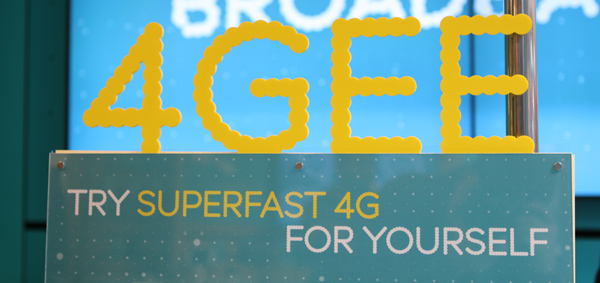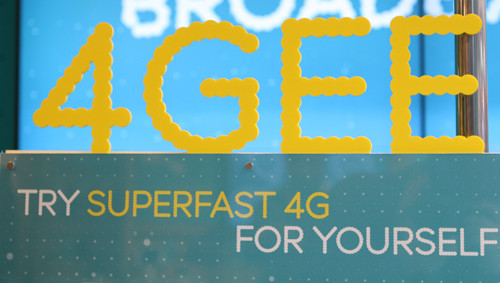
In September 2012, EE (formerly Everything Everywhere) became the first mobile operator to launch 4G services in the UK. With other mobile operators keen to follow suit, we could see super-fast mobile internet available to everyone, sooner than expected. While many of us will be pleased to hear that we can get broadband-style internet speeds out of the house, the news that 4G services are to be launched early may not be music to the ears of Wi-Fi hotspot providers who currently fill the niche between 3G and home broadband.
Many of us consider mobile internet connectivity to be an indispensable utility and demand instant access to a range of resources on the move. While 3G will suffice most of the time, when we haven’t got much signal or want to upload or download a big file, such as a movie or hi-res pictures, many of us will seek out a nearby coffee shop or other venue, with public Wi-Fi . As well as being significantly faster than 3G, using Wi-Fi means that we can avoid paying extra fees for going over our monthly mobile data limit.
But, with the advent of super-fast 4G services, some industry experts are questioning whether there will still be a need for Wi-Fi hotspots. Sky, which owns over 16,000 hotspots operated by The Cloud, certainly seems to think that they have a future. The media company suggests that 4G networks could quickly become congested and speeds could drop as more people make the leap from 3G and download even greater volumes of mobile data than ever before. Plus, with most mobile operators still touting capped data plans, subscribers may continue to log on to Wi-Fi networks to avoid exceeding their monthly internet allowance.
Increasingly, mobile operators are offering free access to large networks of public Wi-Fi hotspots as part of subscription packages. Offering this extra perk, operators differentiate themselves from the competition, while taking some of the strain off of their mobile networks. Having invested a considerable amount to build or acquire these Wi-Fi networks, operators won’t want us to stop using them anytime soon.
Another thing that could save Wi-Fi hotspots from extinction is that they are a real plus for tourists. As anyone who has ever used their mobile phone abroad to access the web can attest, data roaming charges can be incredibly expensive. For visitors coming to the UK, the ability to use Wi-Fi to Skype or ‘Facetime’ with friends and family at home is a big drawer, and so it’s likely that free Wi-Fi will remain high on travellers’ wish lists when they search for accommodation. In fact, Hotels.com found that hotel guests now view free Wi-Fi as more important than a free breakfast or parking, in a recent study.
Although some studies suggest that offering free Wi-Fi can help hotels boost their ratings on review sites such as TripAdvisor and Expedia, and in doing so increase the volume of bookings they receive, many hotels still charge guests for wireless internet access. However, charging for Wi-Fi is not the only way that hotspots can provide a return on investment. Hotspots can be monetised by Wi-Fi supporting online advertising.
As Wi-Fi hotspots are typically in high footfall areas, there is an opportunity for marketers to reach an extremely receptive and captive audience by using the Wi-Fi login pages to display advertising. By taking some basic registration information from users, companies can easily target audiences by age, gender or occupation. Furthermore, as hotspots are highly location specific, companies can provide tailored marketing offers to consumers within the catchment area of certain shops or services.
To put it simply, 4G will not be the nail in the coffin for public Wi-Fi. In the same way that 3G didn’t kill Wi-Fi, the launch of 4G won’t be the death knell for Wi-Fi. That said the future of paid Wi-Fi doesn’t look too rosy. With many of us becoming increasingly reluctant to pay for internet access outside of the home, Wi-Fi providers must take note and identify new ways to monetise public internet.






